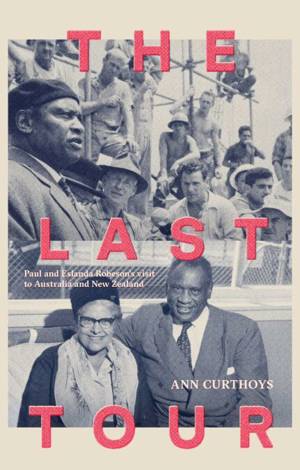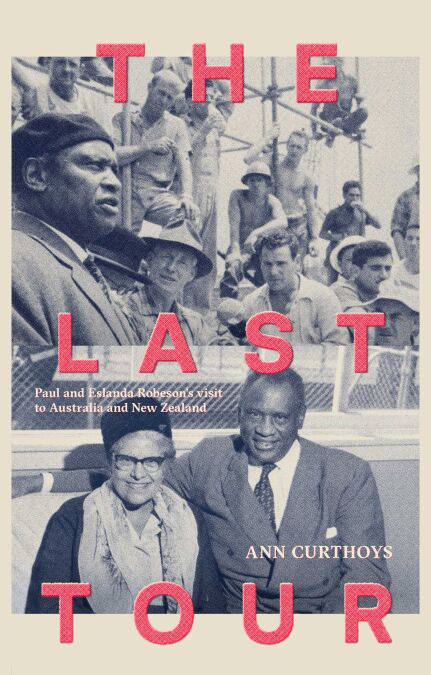
- Retrait gratuit dans votre magasin Club
- 7.000.000 titres dans notre catalogue
- Payer en toute sécurité
- Toujours un magasin près de chez vous
- Retrait gratuit dans votre magasin Club
- 7.000.0000 titres dans notre catalogue
- Payer en toute sécurité
- Toujours un magasin près de chez vous
The Last Tour EBOOK
Paul and Eslanda Robeson's Visit to Australia and New Zealand in 1960
Ann Curthoys
Ebook | Anglais
21,24 €
+ 21 points
Description
Paul Robeson was once the most famous African American in the world. Not only was he a renowned singer and actor with a stunning bass baritone voice, revered throughout the world, he was also a former professional athlete, lawyer and civil rights activist. To the delight of his many fans, he and his wife, Eslanda—a notable civil rights activist, author, United Nations journalist and anthropologist—were finally able to tour Australia and New Zealand. First mooted in the 1930s, it had been delayed by war and then the Cold War, when Paul’s outspoken support for the Soviet Union and against his country’s race relations had led the US government to deny him a passport until 1958. Now, in 1960, the tour occurred at a time when the world was at the tipping point between the Cold War 1950s and the turbulent 1960s.
The Robesons’ tour encompassed concerts—the first one ever at the Sydney Opera House, which was still under construction—talks to unionists, fans, women’s organisations, communists, and peace activists. It involved active engagement with Indigenous peoples and their struggles in both countries. Through their engagement with a wide range of people we see life on the far Left, the emergence of new forms of Aboriginal and Maori protest, and the reception and influence of African American entertainers in Australia and New Zealand. By bringing Eslanda’s work as a writer and journalist to the fore, historian Ann Curthoys sheds light on the intersections of race, gender and women’s political activism.
Based on extensive new documentary and oral history research, The Last Tour explores why Paul and Eslanda Robeson’s trip was such a success and how it exerted a profound influence both at the time and over future generations.
‘No man I’ve ever met has so impressed me with his personal greatness. He’s so simple and unaffected in his manner, so dignified … it’s the man himself, I think, who demonstrates the greatness of the human spirit.’
Katharine Susannah Prichard on Paul Robeson
The Robesons’ tour encompassed concerts—the first one ever at the Sydney Opera House, which was still under construction—talks to unionists, fans, women’s organisations, communists, and peace activists. It involved active engagement with Indigenous peoples and their struggles in both countries. Through their engagement with a wide range of people we see life on the far Left, the emergence of new forms of Aboriginal and Maori protest, and the reception and influence of African American entertainers in Australia and New Zealand. By bringing Eslanda’s work as a writer and journalist to the fore, historian Ann Curthoys sheds light on the intersections of race, gender and women’s political activism.
Based on extensive new documentary and oral history research, The Last Tour explores why Paul and Eslanda Robeson’s trip was such a success and how it exerted a profound influence both at the time and over future generations.
‘No man I’ve ever met has so impressed me with his personal greatness. He’s so simple and unaffected in his manner, so dignified … it’s the man himself, I think, who demonstrates the greatness of the human spirit.’
Katharine Susannah Prichard on Paul Robeson
Spécifications
Parties prenantes
- Auteur(s) :
- Editeur:
Contenu
- Nombre de pages :
- 400
- Langue:
- Anglais
Caractéristiques
- EAN:
- 9780522879902
- Date de parution :
- 15-07-25
- Format:
- Ebook
- Protection digitale:
- Adobe DRM
- Format numérique:
- ePub

Les avis
Nous publions uniquement les avis qui respectent les conditions requises. Consultez nos conditions pour les avis.






